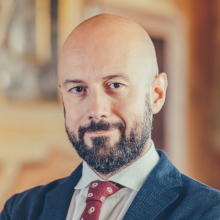
Mauro Cannone
Mauro Cannone is the Director of the International Office at Ca’ Foscari University and works on the campus located in the heart of the historic city of Venice. After obtaining his degree from Ca’ Foscari in Chinese language and culture, he worked in China for almost four years. He then obtained his doctorate in geography from Royal Holloway, University of London, and worked as a post-doctoral fellow at the University of Florence. In his current role, Dr. Cannone overseas the Offices in the World project managed by the Outreach and Recruitment Unit. This unit is also responsible for developing and managing international branding and promotional activities and heading up international student recruitment efforts.
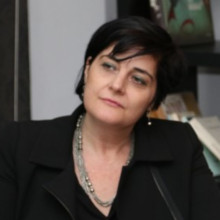
Paola Casagrande
Paola Casagrande is the founder and executive director of United Cultures, the cultural organization that collaborates with Ca’ Foscari University on the management of the Ca’ Foscari Baku Office. United Cultures is specialized in the planning and organization of cultural events in the field of public diplomacy and cultural exchange and its network of prestigious clients and partners include both government agencies, public bodies and private enterprises.
Mrs. Casagrande has a long career in cultural diplomacy in both Azerbaijan and other countries. She began working with Azerbaijan in 2011, and in 2013 she co-founded the first Italian-Azerbaijani Friendship Association in cooperation with the Embassy of Azerbaijan in Italy.
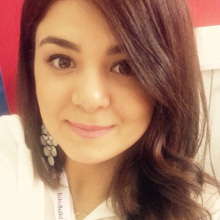
Saida Eyyubova
Saida Eyyubova studied Italian language and culture in the Faculty of Translation at the University of Languages of Azerbaijan and has completed a C2-level course in Italian at the
University for Foreigners of Perugia in Italy. Since 2019 she has been working in the Ca’ Foscari Baku Office, helping to promote the university in Azerbaijan. She collaborates on cultural events organized by Ca’ Foscari in partnership with United Cultures. In the past she has been the Translator for External Affairs at Maeni, an Italian clothing company, and has worked as an Italian language teacher for the Dante Alighieri Society in Baku from 2014 to 2018.
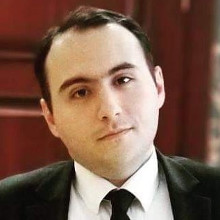
Kanan Zulfugarov
Kanan Zulfugarov holds a B.A. In Legal Regulation of the Economy from the Azerbaijan State University. He works for United Cultures as its Media & Press Relations Officer and cooperates with the Ca’ Foscari Baku Office as a public relations expert and as a tutor for the students from the university who carry out an internship in Baku, including students from the Ca’ Foscari Challenge School. In the past he has worked as a print development team leader for the Baku 2015 European Games Committee and as a public relations manager for the Armenia-Azerbaijan Civil Peace Platform.
Research collaborators
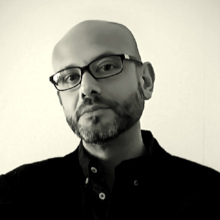
Carlo Frappi - Ca' Foscari Baku Office Faculty Coordinator
Carlo Frappi is a researcher in the Department of Asian and North African Studies at Ca’ Foscari, where he teaches “Azerbaijan’s Contemporary History, Foreign Policy and Economics” and “Geopolitics and Geoeconomics of the Caspian Sea Area”. A member of the Board of Directors of the Italian Association for the Study of Central Asia and the Caucasus (ASIAC), he is also an associate researcher for the Russia, Caucasus and Central Asia Centre and for the Energy Security Program at the Institute for International Political Studies (ISPI). He has written two monographs on contemporary Azerbaijan and several of his articles have been published in academic journals. Since 2010 he has been a co-author of the ISPI quarterly monitoring energy security for the Italian Parliament and Ministry of Foreign Affairs with a focus on Eurasian energy producer states’ policies and strategies.
Besides cooperating with Azerbaijani colleagues in the fields of International Relations and Area Studies, he has been coordinating and facilitating the activities of the Ca’ Foscari research collaborators in Azerbaijan since 2018.
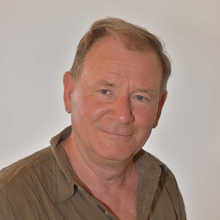
Giampiero Bellingeri
Giampiero Bellingeri is an associate professor at Ca’ Foscari, where he teaches the Turkish language, Turkish literary culture and the fundamentals of cultural politics with a focus on the relationship between Venice and the Orient(s). His academic research explores a wide range of topics, including: the literature of Turkey; the Turkic expression literature in Iran and Transcaucasia from the sixteenth through the twentieth centuries; Turkish–Venetian cultural relations from the fifteenth through the eighteenth century; Turkish–Russian literary relations in the Caucasus and in the Central Asian steppes under the Tsarists and during the Soviet era; the investigation of the literary texts in Ottoman Turkish preserved in Venice’s libraries and archives; and the news about and descriptions of the Turkic peoples of the Caucasus and Central Asia in Venetian primary sources after Marco Polo and until the fall of the Republic. Professor Bellingeri’s interests include literary expressions in the various Turkic languages (Azerbaijani, Turkmen, Central Asian), both modern and contemporary, of which he has also translated and made known in Italy such authors as Orhan Pamuk, Yahya Kemal, Yakup Kadri Karaosmanoğlu, Nâzım Hikmet, Mario Levi, Sunay Akın, C.S. Tarancı, Ahmet Altan and Oğuz Atay.
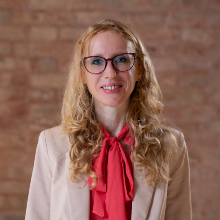
Sara De Vido
Sara De Vido is an associate professor of International Law at Ca’ Foscari, where she teaches international law, human rights law and European Union law. She also teaches at Venice International University on the island of San Servolo. She is vice-director of the Centre for Human Rights (Cestudir) at Ca’ Foscari and an affiliate of the Manchester International Law Centre, UK, where she co-founded the Women in International Law Network (Wilnet). She has spent several research periods abroad, including at the University of Manchester, UK, and at the Hitotsubashi and Waseda universities in Tokyo, Japan. She teaches in Italian, English and French in Italy and abroad. Her main interests of research are: the fight against transnational criminality and women’s rights under international law. Among her publications, a monograph on the Council of Europe Istanbul Convention on preventing and combating violence against women and domestic violence (Donne, violenza e diritto internazionale, Mimesis, 2016). Her book "Violence against Women’s Health under International Law" is forthcoming from the Manchester University Press (2020).
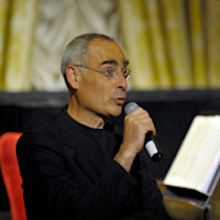
Giovanni De Zorzi
Giovanni De Zorzi is an associate professor of ethnomusicology at the Ca’ Foscari University of Venice. His main research areas are the Ottoman and Central Asian traditions of classical and Sufi music. Among his many publications is his monograph Musiche di Turchia: Tradizioni e Transiti tra Oriente ed Occidente (Milan, 2010). He is also a musician (ney flute player) and performs both as a soloist and with his Ensemble Marâghî. In March 2008 he travelled to Azerbaijan, where he participated with his ensemble in the Space of Mugham Festival. He then returned to Baku in 2009 for a symposium on musical instruments. Later he facilitate a collaboration between ethnomusicologist Sanubar Baghirova, the Ministry of Tourism and Culture of Azerbaijan and the Italian music label Felmay, which led to the recording of six CDs dedicated to the documentation of the principal musical traditions of the country.
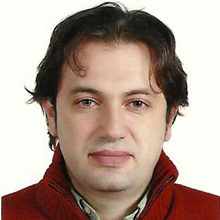
Giuseppe Maugeri
Giuseppe Maugeri is a research fellow in Language Sciences. He is a trainer in Italy and abroad on topics related to the spread of Italian language and culture in the world. In particular, he deals with strategies regarding linguistic politics, the cultural promotion of the Italian Cultural Institutes, and the teaching of Italian as a foreign language. As a member of the team developing an inter-university cooperation between Ca’ Foscari and institutional partners in Azerbaijan, since 2017 he has been involved in the co-planning of an ICM KA1 project for Azerbaijan as well as the realization of language training initiatives for Azerbaijani language teachers with a view to opening a section of Italian studies at Ganja State University.
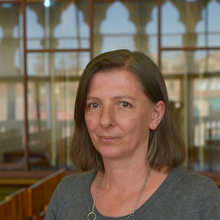
Maria Roberta Novielli
Maria Roberta Novielli graduated from Ca’ Foscari with a focus on Eastern Languages and Literatures and obtained her specialization in Cinema at the Nihon University of Tokyo. She is now an associate professor of the history of cinema and animation at Ca' Foscari as well as the artistic director of Ca' Foscari’s Short Film Festival and Master in Fine Arts in Filmmaking. In addition to these responsibilities she is also the curator of the AsiaMedia website (Ca' Foscari University of Venice), the editor of two book series (Schermi Orientali; Contemporary Japan), the academic co-coordinator of the "Films in Venice and Filming Venice" summer school organized by Venice International University and a member of the Evaluation Committee of the Veneto Film Commission.
Prof. Novielli has also collaborated on various cinematographic activities at festivals in Venice, Tokyo, Locarno and elsewhere, and has organized and taken part in numerous conferences, round tables and symposiums at both the national and international levels. Her books and articles have been published both in Italy and abroad. Her various monographs include "Storia del cinema giapponese" (2001; also translated and published in Brazil in 2007), "Metamorfosi: Schegge di violenza nel nuovo cinema giapponese" (2010), "Animerama: Storia del cinema d'animazione giapponese" (2015) and "Floating Worlds: A Short History of Japanese Animation" (2018).
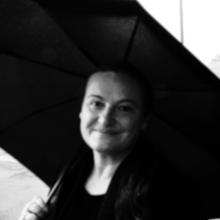
Elisabetta Ragagnin
Elisabetta Ragagnin obtained her master’s degree at Ca’ Foscari and then carried out her doctoral studies at the Johannes Gutenberg University of Mainz. Currently, she is an associate professor of Turcology at the Free University Berlin and an adjunct professor at Ca’ Foscari.
Her research interests include the fields of Turkic and Mongolic linguistics, philology, cultural studies and literature, as well as Silk Road studies, covering a vast geographical area stretching from the Near East and the Caucasus to Central Asia and Mongolia.
In Azerbaijan, she has given lectures and seminars on Turkic linguistics at several universities, including the Baku State University, Qafqaz University and the Baku Eurasian University. In 2014 she was awarded an honorary doctorate by the Azerbaijani Academy of Sciences. She is member of the advisory board of the Azerbaijani journals "Türkologiya and Dilçilik araşdırmaları".
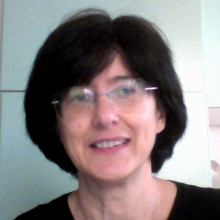
Elena Rova
Elena Rova is an associate professor of Near Eastern Archaeology in the Department of Humanities at Ca’ Foscari. She specializes in the archaeology of pre-classical Upper Mesopotamia, Anatolia and the Southern Caucasus and her research focuses on the urban cultures of the Chalcolithic and Bronze ages and their relations with their northern neighbours. Since 2009 she has been leading Ca’ Foscari’s archaeological expedition in Georgia’s Shida Kartli region (Lagodekhi). She is the general editor (with M. Lebeau) of the Araxes series (Brepols) dedicated to the archaeology of the Southern Caucasus and she organized the international conference entitled "At the Northern Frontier of Near Eastern Archaeology: Recent Research on Caucasia and Anatolia in the Bronze Age” that took place in Venice in 2013.
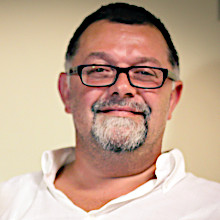
Graziano Serragiotto
Graziano Serragiotto is an associate professor in the Department of Comparative Linguistic and Cultural Studies at Ca’ Foscari and is also the director of the ITALS Laboratory. His interest in Azerbaijan has developed in the direction of language-teaching training of Azerbaijani faculty and in the area of teaching Italian to foreigners. With this in mind, since February 2017 he has carried out and taken part in ICM KA1 projects, preparing and carrying out language-teaching training initiatives to Azerbaijani teachers of foreign languages at Ganja State University with the aim of contributing to the specialization of teachers engaged in teaching of foreign languages and, in the future, of Italian.
Building on this, Prof. Serragiotto is now involved in a new ICM project whose capacity building and exchange of expertise objectives involve two of the most prestigious Azerbaijani universities. In fact, the project exploits the dual value of the process of internationalization in the area of didactics: to propose training interventions aimed at strengthening the methodological skills of Azerbaijani teachers on the one hand, and sharing a research model focused on language-teaching models on the other. The project’s final aim is to support professional paths of growth and more effective research skills in the field of language education.
